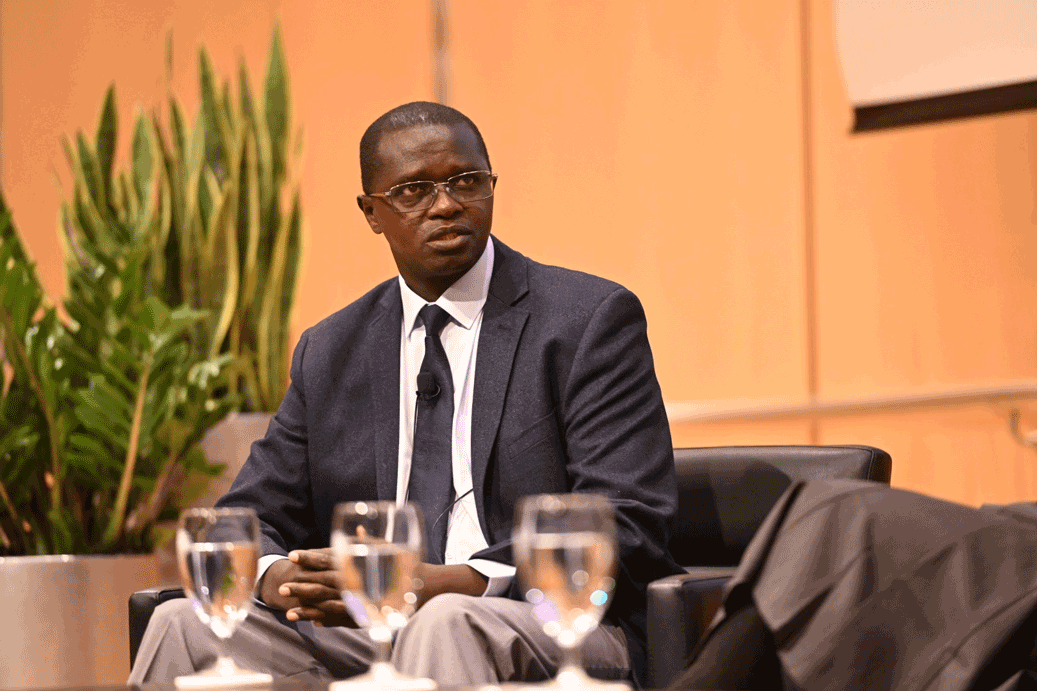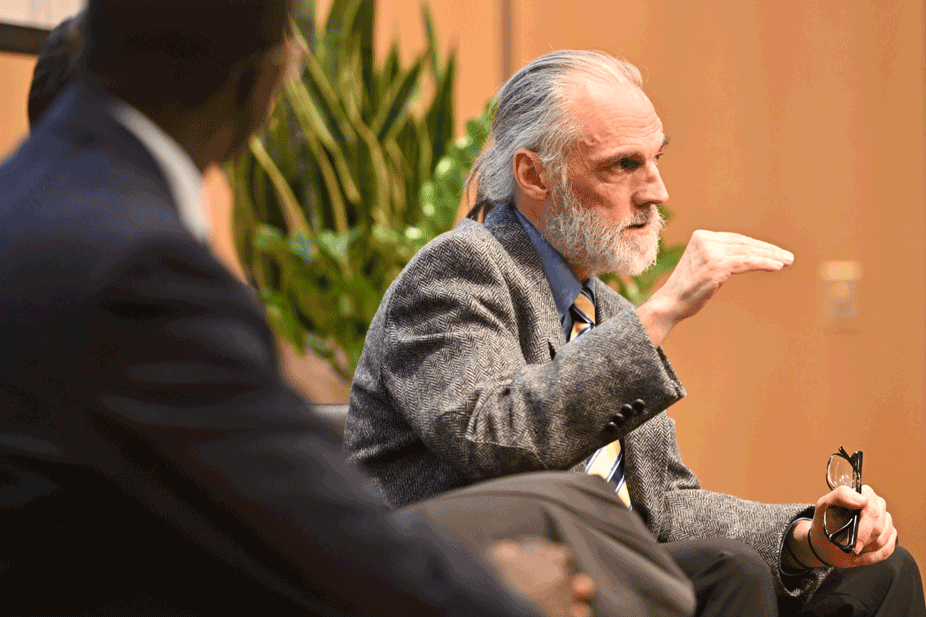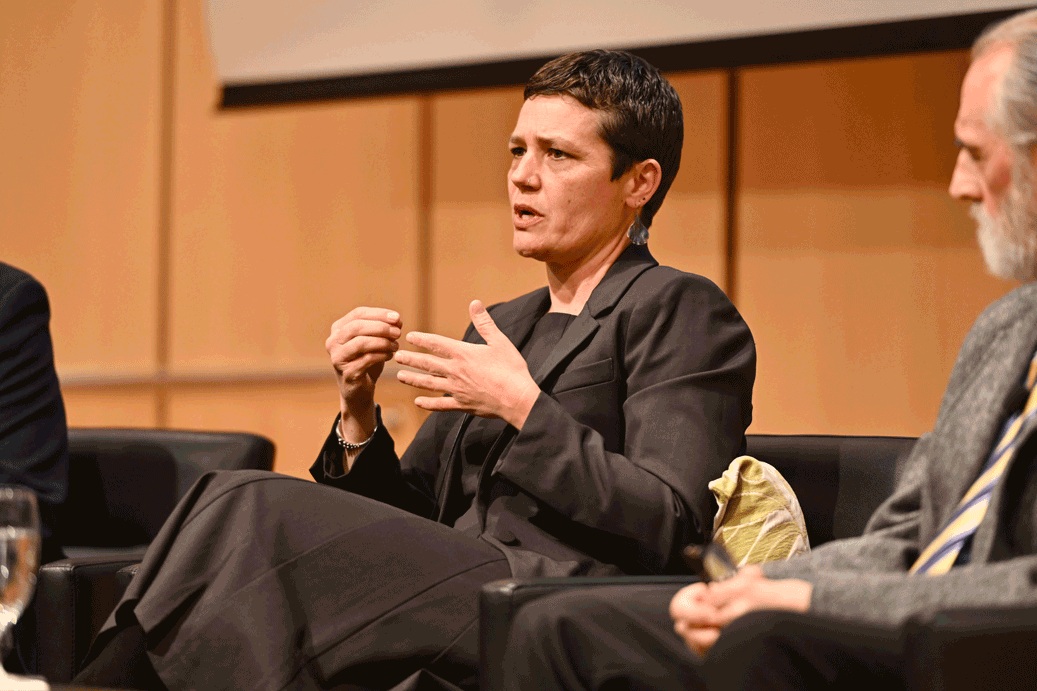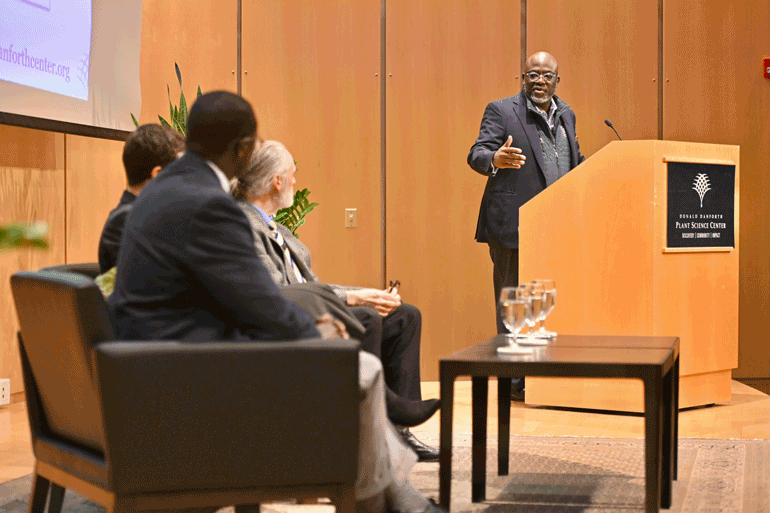Food for Thought: Experts Share Solutions to Global Hunger at Conversations
Food security is a critical, fundamental right—and plant science is the key to ensuring it for all. Through stories, insights, and words of hope, this was the message delivered to the audience of “Conversations: Nourishing our Future” on March 27. This event, hosted by the Danforth Center and broadcast live to viewers around the world, brought together a panel of esteemed scientific minds to explore the inextricable connection between food, national, and economic security, and how innovation can bring about a healthier tomorrow.

“The whole of the East Africa region, they depend on cassava,” said Professor Douglas Miano, PhD, who travelled from Kenya for the event.
The Root of the Matter
Much of the evening’s discussion centered around the root crop cassava—a staple for millions of people in Africa, and essential to the livelihoods of the smallholders who grow it. “It’s the very essence of life,” said moderator Dr. Benjamin Ola. Akande, SVP of Stifel Financial and Danforth Leadership Council chair, who grew up in Nigeria. However, this vital tuber is susceptible to viruses (cassava brown streak disease and cassava mosaic disease) which render the crop worthless.
But change is on the horizon. As Principal Investigator Dr. Nigel J. Taylor, Dorothy J. King Distinguished Investigator, explained, the Danforth Center is leading the charge to conquer this threat to food security through a partnership called the Virus Resistant Casava for Africa Project (VIRCA Plus).

At "Conversations: Nourishing our Future," Dr. Nigel Taylor discussed how the VIRCA Plus project is currently training farmers in Kenya to grow, distribute, and benefit from the project’s disease-resistant cassava varieties. "They will have the training, grow the cassava, and sell the cassava; this will be a self-sustaining economic system."
As the name implies, the project’s goal is to develop cassava varieties that are resistant to the two diseases and, more importantly, get those varieties into farmers’ hands. Thanks to investment from both private donors and the Bill & Melinda Gates Foundation, and years of dedication by Danforth Center teams, improved cassava is finally approaching the finish line. And those involved hope to see a product launch next year.
The Danforth Center is a special place because it has remained committed to this type of work. Nigel J. Taylor, PhD
Danforth Center Principal Investigator and International Head of the VIRCA Plus Project.
Dr. Douglas Watuku Miano, professor at University of Nairobi and head of the project in Kenya, explained that because plant science enables people to grow their own food, it also empowers them to feed themselves, ensure their economic security, and transform their communities. “The world becomes safer when everyone is able to produce their own food,” he said.

“If you think of a farmer in Kansas growing wheat, and you think of a farmer in India growing wheat, they’re both facing a world that is becoming hotter.” - Saharah Moon Chapotin, PhD.
FFAR Sighted
Revolutionary plant science, like that of VIRCA Plus, is also sorely needed here in the United States and all across the planet, as Dr. Saharah Moon Chapotin, executive director of the Foundation for Food & Agriculture Research (FFAR), made clear. And while all countries have their own unique challenges to face, there are some issues, like rising temperatures, that impact everyone. However, Dr. Chapotin also made clear that agriculture is a global field that can produce global outcomes. And by choosing to invest in agricultural research, we can help farmers everywhere combat climate change, fend off emerging viruses, and create a food system that gives everyone the well-nourished life they deserve.
Science doesn’t stop at the borders of one country. Saharah Moon Chapotin, PhD
Executive Director of the Foundation for Food & Agriculture Research
Help Feed the World
If you’d like to help ensure food security for millions of people and support life-changing plant science projects like VIRCA Plus, consider making a donation to the Danforth Center today.
Watch the Event
Event Recording by HEC
For information on sponsoring future Conversations, contact Lee’at Bachar, Corporate and Foundation Relations Officer, at 314.587.1210 or email: lbachar@danforthcenter.org.

